 W
WA makar is a term from Scottish literature for a poet or bard, often thought of as a royal court poet.
 W
WMakars' Court is a courtyard in central Edinburgh, Scotland. It forms part of Lady Stair's Close, which connects the Lawnmarket with The Mound to the north, and is next to the Writers' Museum. Described as an "evolving national literary monument", the courtyard incorporates quotations from Scottish literature inscribed onto paving slabs. The quotations represent works in the languages used by Scots past and present: Gaelic, Scots, English, and Latin.
 W
WJohn Barbour was a Scottish poet and the first major named literary figure to write in Scots. His principal surviving work is the historical verse romance, The Brus, and his reputation from this poem is such that other long works in Scots which survive from the period are sometimes thought to be by him. He is known to have written a number of other works, but other titles definitely ascribed to his authorship, such as The Stewartis Oryginalle and The Brut (Brutus), are now lost.
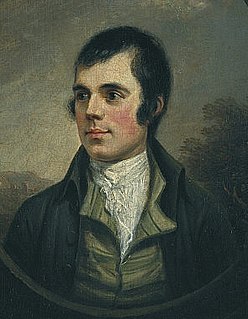 W
WRobert Burns, also known familiarly as Rabbie Burns, the National Bard, Bard of Ayrshire and the Ploughman Poet and various other names and epithets, was a Scottish poet and lyricist. He is widely regarded as the national poet of Scotland and is celebrated worldwide. He is the best known of the poets who have written in the Scots language, although much of his writing is in English and a light Scots dialect, accessible to an audience beyond Scotland. He also wrote in standard English, and in these writings his political or civil commentary is often at its bluntest.
 W
WThe Castalian Band is a modern name given to a grouping of Scottish Jacobean poets, or makars, which is said to have flourished between the 1580s and early 1590s in the court of James VI and consciously modelled on the French example of the Pléiade. Its name is derived from the classical term Castalian Spring, a symbol for poetic inspiration. The name has often been claimed as that which the King used to refer to the group, as in lines from one of his own poems, an epitaph on his friend Alexander Montgomerie:
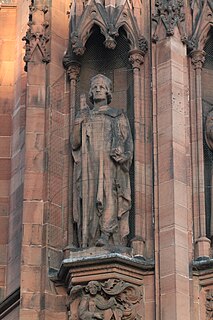 W
WGavin Douglas was a Scottish bishop, makar and translator. Although he had an important political career, he is chiefly remembered for his poetry. His main pioneering achievement was the Eneados, a full and faithful vernacular translation of the Aeneid of Virgil into Scots, and the first successful example of its kind in any Anglic language. Other extant poetry of his includes Palice of Honour, and possibly King Hart.
 W
WWilliam Drummond, called "of Hawthornden", was a Scottish poet.
 W
WWilliam Dunbar was a Scottish makar poet active in the late fifteenth century and the early sixteenth century. He was closely associated with the court of King James IV and produced a large body of work in Scots distinguished by its great variation in themes and literary styles. He was likely a native of East Lothian, as assumed from a satirical reference in The Flyting of Dumbar and Kennedie. His surname is also spelt Dumbar.
 W
WRobert Fergusson was a Scottish poet. After formal education at the University of St Andrews, Fergusson led a bohemian life in Edinburgh, the city of his birth, then at the height of intellectual and cultural ferment as part of the Scottish enlightenment. Many of his extant poems were printed from 1771 onwards in Walter Ruddiman's Weekly Magazine, and a collected works was first published early in 1773. Despite a short life, his career was highly influential, especially through its impact on Robert Burns. He wrote both Scottish English and the Scots language, and it is his vivid and masterly writing in the latter leid for which he is principally acclaimed.
 W
WHamish Scott Henderson was a Scottish poet, songwriter, communist, intellectual and soldier.
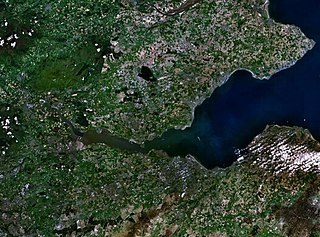 W
WRobert Henryson was a poet who flourished in Scotland in the period c. 1460–1500. Counted among the Scots makars, he lived in the royal burgh of Dunfermline and is a distinctive voice in the Northern Renaissance at a time when the culture was on a cusp between medieval and renaissance sensibilities. Little is known of his life, but evidence suggests that he was a teacher who had training in law and the humanities, that he had a connection with Dunfermline Abbey and that he may also have been associated for a period with Glasgow University. His poetry was composed in Middle Scots at a time when this was the state language. His writing consists mainly of narrative works. His surviving body of work amounts to almost 5000 lines.
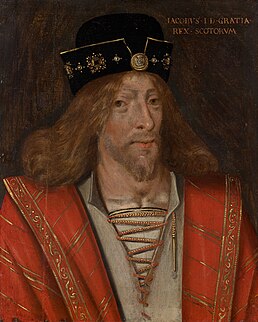 W
WJames I was King of Scotland from 1406 to 1437. The youngest of three sons, he was born in Dunfermline Abbey to King Robert III and his wife Annabella Drummond. His older brother David, Duke of Rothesay, died under suspicious circumstances while being detained by their uncle, Robert, Duke of Albany. His other brother, Robert, died young. Fears for James's safety grew through the winter of 1405/6 and plans were made to send him to France. In February 1406, James was forced to take refuge in the castle of the Bass Rock in the Firth of Forth after his escort was attacked by supporters of Archibald, 4th Earl of Douglas. He remained there until mid-March when he boarded a vessel bound for France. On 22 March English pirates captured the ship and delivered the prince to Henry IV of England. The ailing Robert III died on 4 April and the 11-year-old James, now the uncrowned King of Scotland, would not regain his freedom for another eighteen years.
 W
WJacqueline Margaret Kay,, is a Scottish poet, playwright, and novelist, known for her works Other Lovers (1993), Trumpet (1998) and Red Dust Road (2011). Kay has won a number of awards, including the Guardian Fiction Prize in 1998 and the Scottish Mortgage Investment Trust Book of the Year Award in 2011.
 W
WWalter Kennedy, younger brother of John Kennedy, 2nd Lord Kennedy of Dunure. Clan Kennedy. He was parson of Douglas who acquired Glentig in 1504 from John Wallace, and married Christian Hynd.
 W
WSir David Lyndsay of the Mount was a Scottish herald who gained the highest heraldic office of Lyon King of Arms. He remains a well regarded poet whose works reflect the spirit of the Renaissance, specifically as a makar.
 W
WChristopher Murray Grieve, best known by his pen name Hugh MacDiarmid, was a Scottish poet, journalist, essayist and political figure. He is considered one of the principal forces behind the Scottish Renaissance and has had a lasting impact on Scottish culture and politics.
 W
WAlexander Montgomerie was a Scottish Jacobean courtier and poet, or makar, born in Ayrshire. He was one of the principal members of the Castalian Band, a circle of poets in the court of James VI in the 1580s which included the king himself. Montgomerie was for a time in favour as one of the king's "favourites". He was a Catholic in a largely Protestant court and his involvement in political controversy led to his expulsion as an outlaw in the mid-1590s.
 W
WEdwin George Morgan was a Scottish poet and translator associated with the Scottish Renaissance. He is widely recognised as one of the foremost Scottish poets of the 20th century. In 1999, Morgan was made the first Glasgow Poet Laureate. In 2004, he was named as the first Scottish national poet: The Scots Makar.
 W
WAllan Ramsay was a Scottish poet, playwright, publisher, librarian, and impresario of early Enlightenment Edinburgh.
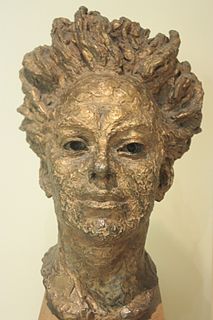 W
WWilliam Soutar was a Scottish poet and diarist, who wrote in both English and Braid Scots. He is known best for his epigrams.
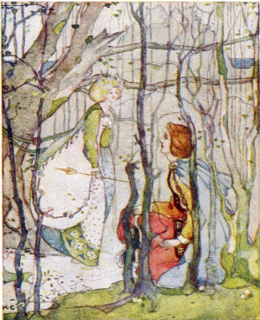 W
WSir Thomas de Ercildoun, better remembered as Thomas the Rhymer, also known as Thomas Learmont or True Thomas, was a Scottish laird and reputed prophet from Earlston in the Borders. Thomas' gift of prophecy is linked to his poetic ability.